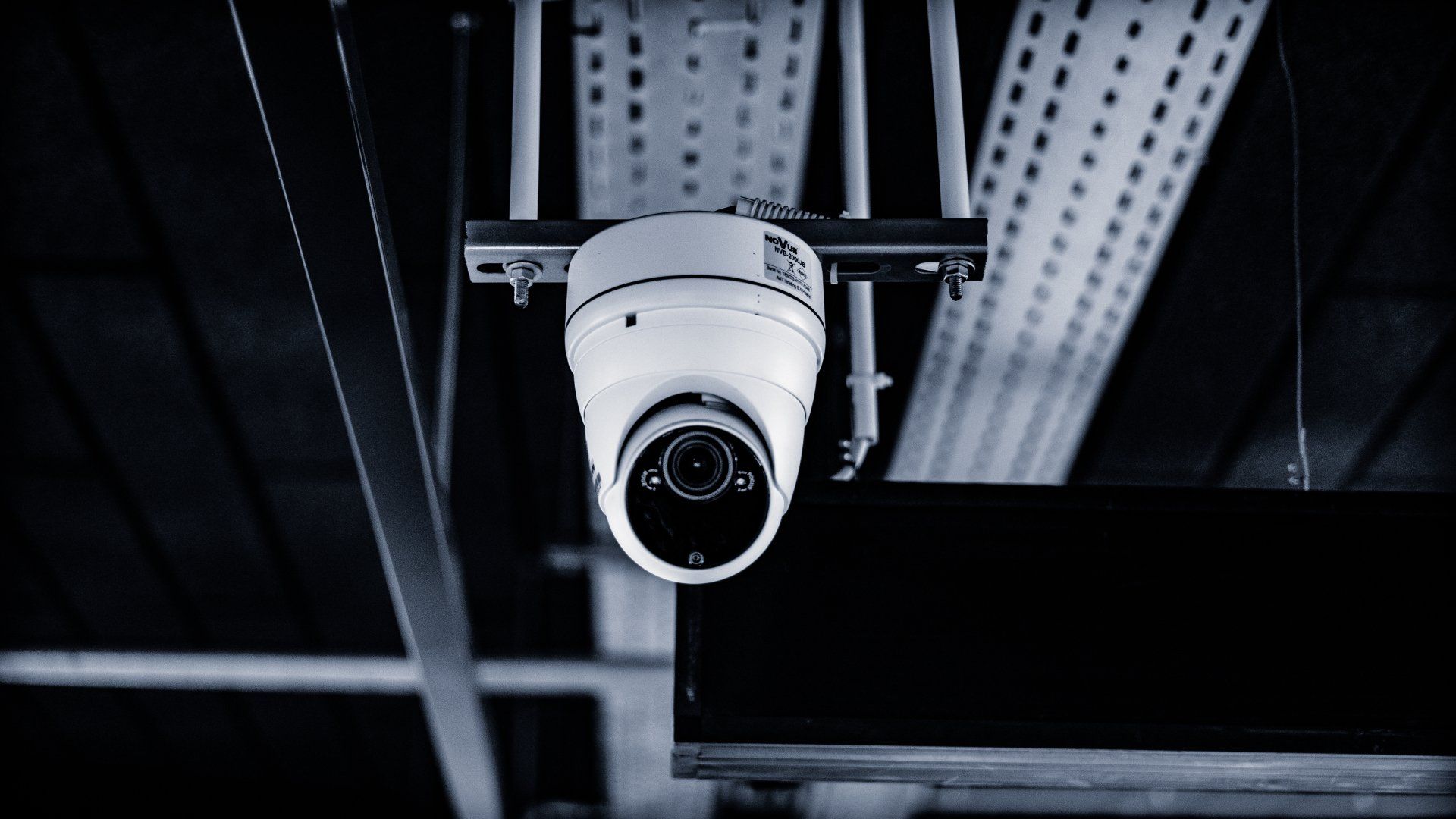
If you are a Licensed Professional with a previous arrest in the Orange Beach, Alabama, we know negative career consequences can result. Our law Firm has successfully obtained expungements for Licensed Professionals in most every career field. Some of the positions considered to be Licensed Professionals include: Attorneys, Real Estate Agents and Brokers, Certified Public Accountants (CPAs), Engineers, Pharmacists, Registered Nurses (RNs), Medical Doctors (MDs), and Physician’s Assistants (PAs), Nurse Practitioners, Certified Registered Nurse Anesthetists (CRNAs), amoung others.
Many Licensed Professionals and future Licensed Professionals are unaware that even if your prior criminal charge in Alabama was dismissed or did not result in a conviction, the record of your arrest will remain on your criminal background report unless it is removed via an Order of Expungement from the proper Court in Alabama.
As a Licensed Professional, even certain arrest records for violations and misdemeanors can have substantial negative impacts on licensing and career advancement. Our Orange Beach, Alabama Expungement Law Firm has successfully obtained expungements of prior Alabama arrests records for professionals in many types of drug and alcohol charges, including: Driving Under the Influence (DUI), Possession of Marijuana 1st and 2nd degree, Unlawful Possession of a Controlled Substance, Unlawful Distribution of a Controlled Substance, Unlawful Possession/Use of Drug Paraphernalia, Public Intoxication, among other crimes. Our Orange Beach, Alabama Expungement lawyers have also obtained expungements for professionals previously arrest for many types of personal and property crimes in Alabama, including: Domestic Violence, 3rd degree, Harassment, Resisting Arrest, Theft of Property 1st, 2nd, 3rd, and 4th degrees, Possession of a Forged Instrument, among many others.
The proper jurisdiction to petition to expunge eligible, prior Alabama arrest records is the Alabama Circuit Court of the county where the original charge was pending. No matter in what state you reside, Licensed Professionals previously arrested in Baldwin County, Alabama must petition to expunge said arrest in Baldwin County, Alabama to clear their criminal background the best as legally possible (if your case is eligible).
Expungements are the focus of our Orange Beach Alabama Expungement Lawyer, Jordan M. Copeland – clearing criminal records to the extent of Alabama law for his clients. If you are a Licensed Professional, no matter in what state you reside, if your prior arrest was in Orange Beach, Alabama or surrounding areas in Alabama, our Orange Beach, Alabama Expungement Law Firm can represent you remotely through the entire Petition for Expungement process without a visit to our law office.
Our Orange Beach, Alabama Expungement Lawyer’s goal is to have the Circuit Court grant your Petition for Expungement without the necessity of a court hearing. Although a hearing is possible, from our experience a vast majority of our cases are not set for a hearing because of no objection from the District Attorney’s office. In Alabama even if your case is eligible for an expungement, the District Attorney’s office has forty-five (45) days after the petition is served to file any objection with the Court. Therefore, our Orange Beach, Alabama Expungement Law Firm prepares custom petitions for expungement detailing the positive factors of each client giving the Court the detailed grounds for and reasons each client is seeking an expungement order from the Court. Our goal is to bolster you petition for expungement with our custom supporting packets for each petition.
If you are a Licensed Professional that has had a prior arrest in Orange Beach, Alabama, or surrounding areas, that record of arrest will remain on your criminal background report unless you are granted an Order of Expungement in Alabama. You need an experienced Orange Beach, Alabama Expungement Lawyer to represent you through the legal process. Many Licensed Professionals across the USA that were previously arrested in Orange Beach, Alabama have already trusted our law firm to represent them through the petition for expungement process in Alabama. No attorney can ethically guarantee a result in any representation. Our experience and results in petitions for expungement representation in Alabama speaks for itself.
Check out our Google Reviews on our Google Map Page titled “Orange Beach Criminal Defense Lawyer – J.M. Copeland”. For more information regarding your particular expungement eligibility, feel free to email us at: Jordan@OrangeBeachLawyer.com or call our office at: (251) 545-3637.

Were you arrested for shoplifting at Walmart self-checkout in Gulf Shores, Alabama? If so, you need an experienced criminal defense lawyer to defend you in the Gulf Shores Municipal Court. Shoplifting (Theft of Property, 4th degree) is a Class A misdemeanor in Alabama with potential jail time of up to 365 days if convicted.
A shoplifting / theft of property, 4th degree charge from Walmart in Gulf Shores requires the City Prosecutor to prove the following:
“(a) A person commits the crime of theft of property if he or she: (1) Knowingly obtains or exerts unauthorized control over the property of another, with intent to deprive the owner of his or her property ; [or] (2) Knowingly obtains by deception control over the property of another, with intent to deprive the owner of his or her property ; … “ (emphasis added) Section 13A-8-2 (Code of Ala.)
“(a) The theft of property which does not exceed five hundred dollars ($500) in value and which is not taken from the person of another constitutes theft of property in the fourth degree. (b) Theft of property in the fourth degree is a Class A misdemeanor.” Section 13A-8-5 (Cod of Ala.)
Therefore, If you are charged with shoplifting from Walmart in Gulf Shores, you need an experienced Criminal Defense lawyer to represent you against the City of Gulf Shores. The Prosecutor must prove the element of intent: knowingly obtaining unauthorized control of the property, and intent to deprive the owner of property. The element of intent is decided by the Judge in Gulf Shores Municipal Court if there is a bench trial. If the case is appealed to the Circuit Court of Baldwin County for a jury trial, the jury will decide if you had intent based on the evidence presented at trial.
Walmart in Gulf Shores is very aggressive in the prosecution of suspected shoplifting via the self-checkout kiosks. Self-Checkout kiosks at Walmart in Gulf Shores are monitored by cameras at each kiosk and some Walmart stores are now installing Artificial Intelligence (AI) anti-theft technology at self-checkout kiosks. Walmart in Gulf Shores also has “eye in the sky” 360 degree cameras in the ceiling throughout the store. These cameras are far away but can be controlled and zoom in close enough to read your text message on your phone screen.
If you are suspected of shoplifting at a self-checkout at the Gulf Shores Walmart, a member of the Loss Prevention (aka Asset Recovery) team may approach you just before you leave the store. They will identify themselves and ask you to follow them with your cart of items into the security room that most people do not know about. The security room at the Gulf Shores Walmart will be recording audio/video of you. The loss prevention worker will likely attempt to get you to admit you were intentionally bagging items without scanning them or other methods of an alleged shoplifting they detect.
Remember, Gulf Shores Walmart loss prevention (asset recovery) employees are NOT required legally to read you Miranda Rights before they question you because they are not law enforcement officers. Therefore, if you are in a situation where you are being accused of shoplifting from Gulf Shores Walmart by a loss prevention employee, know that everything is being recorded and your best response should usually be to remain silent, respectfully not answer any questions, and know that you are probably about to get arrested by the Gulf Shores Police Department. Even if you did not intentionally bag an item that did not scan, or that scanned wrong, etc., there is no need to give a statement or respond in any way. If you get arrested save your talking for your criminal defense lawyer you will consult with to discuss representatio
Criminal defense lawyer, Jordan M. Copeland has represented many people charged with shoplifting from Walmart and other businesses in Gulf Shores. Experienced and result oriented criminal defense lawyer, Jordan M. Copeland, and his law office has defended people against shoplifting charges since 2007.
If you are charged with shoplifting / theft of property, 4th degree from Walmart in the Gulf Shores Municipal Court and you retain our law office to represent you, we can go to work filing the proper Motions to Produce Evidence and Subpoenas via the Court necessary to obtain all the audio/video evidence in your case. We can review all this discovery evidence before your court date to build the best defense and leverage your position with the Prosecutor and Judge. Our goal (not guarantee, no lawyer can ethically make a guarantee as to results of a case) is to keep you out of jail and for your case to result in a non-conviction. Our experience and results speak for themselves.
Law Offices of Jordan M. Copeland located in Foley also represent clients in Petitions for Expungement of prior shoplifting / theft of property, 4th degree cases from Walmart in Gulf Shores and throughout Baldwin County. Many people are unaware of the following fact: If you were previously charged with shoplifting / theft of property, 4th degree from Walmart in Gulf Shores, even if the case resulted in a non-conviction (dismissed, nolle prossed, not guilty after trial, etc.) you will still have the record of the arrest for shoplifting on you criminal background reports with the state, FBI, and non-government background reports unless you are granted an Order of Expungement from the Circuit Court of Baldwin County.
If you were previously charged shoplifting / theft of property 4th degree at Walmart in Gulf Shores and your case was “nolle prossed” or “dismissed with prejudice” (as Ordered on the final Case Action Summary) you can be eligible to Petition for Expungement of the arrest records after 90 days from the final Order from the Judge. If the case was “dismissed” you must wait a year from the date of dismissal before it is eligible to Petition for Expungement.
If you were convicted (pled guilty or found guilty after a trial) of shoplifting / theft of property, 4th degree from Walmart in Gulf Shores, you must wait three (3) years before your case can be eligible to petition or an Expungement of the conviction.
For more information and possible representation in defense of a shoplifting / theft of property, 4th degree charge from Walmart in Gulf Shores, contact the Criminal Defense Law Office of Jordan M. Copeland at (251) 545-3637 or Jordan@OrangeBeachLawyer.com. Also, feel free to contact our law office if you had a prior shoplifting / theft of property, 4th degree charge from Walmart in Gulf Shores and you are interested to determine if you are eligible to retain our law office to represent you in the petition for expungement process to clear your criminal record.

Will an expungement in Baldwin County, Alabama clear a criminal background report? We are often asked that question by potential expungement clients and the answer is generally "yes". A Baldwin County, Alabama Expungement clears a criminal background report. After the Circuit Court of Baldwin County, Alabama issues an Order of Expungement the process of the record of arrest / conviction being cleared from the client’s State of Alabama and Federal Criminal Background Reports begins. (See §15-27-6 and §15-27-7 Ala. Code , 1975)
Baldwin County Expungement of Records from State of Alabama (ALEA) and FBI Criminal Background Reports
All criminal justice agencies with records of the arrest / conviction that were ordered expunged and are subject to the Alabama expungement statute should receive a copy of the Order of Expungement (sent by the Circuit Clerk). Then they will have 180 days to certify to the Court that the required expungement action has been completed. (See: §15-27-6 Ala. Code , 1975) The following language or similar language will generally be contained in an Order of Expungement issued by Circuit Courts in Alabama:
“… ORDERED that any other Agency or Official having custody of records pertaining to the above-listed Charge and Case No. shall EXPUNGE, by collecting and sending said records to the Alabama Law Enforcement Agency (ALEA), all records, including law enforcement records* , in the custody of the named Agency, Official, or Law Enforcement Officer pertaining to the above-listed Charge and Case No. ________ … It is Further Ordered that all proceedings related to the above listed charges are DEEMED NEVER TO HAVE OCCURRED. VIOLATION OF THIS ORDER IS PUNISHABLE UNDER ALABAMA LAW. “AN INDIVIDUAL WHO KNOWS AN EXPUNGEMENT ORDER WAS GRANTED PURSUANT TO THIS CHAPTER [§ 15-27] AND WHO INTENTIONALLY AND MALICIOUSLY DIVULGES, MAKES KNOWN, REVEALS, GIVES ACCESS TO, MAKES PUBLIC, USES, OR OTHERWISE DISCLOSES THE CONTENTS OF AN EXPUNGED FILE WITHOUT A COURT ORDER, OR PURSUANT TO A PROVISION OF THIS CHAPTER, SHALL BE GUILTY OF A CLASS B MISDEMEANOR.” Ala. Code § 15-27-16(a) (1975). *Including Alabama law enforcement records except privileged presentence or post-sentence investigation reports produced by the Alabama Board of Pardons and Paroles and its officers, records, documents, databases, and files of the district attorney and the Office of Prosecution Services. Ala. Code § 15-27-6(a) (1975).” (See: State of Alabama Unified Judicial System Form CR-65D Rev. 4/2015)
For purposes of the Alabama expungement law, a “… RECORD… The term shall include, but is not limited to, all of the following:
a. Arrest and conviction records.
b. Booking or arrest photographs of the petitioner.
c. Index references such as the State Judicial Information System or any other governmental index references for public records search.
d. Records relating to administrative suspension pursuant to Article 14 of Chapter 5A of Title 32, including driver license suspension records.
e. Other data, whether in documentary or electronic form, relating to the arrest, charge, or conviction.” Ala. Code § 15-27-9 (1975)
Additionally, for purposes of the Alabama expungement law, § 15-27-9(1) “CRIMINAL JUSTICE AGENCIES” are defined in Section 41-9-590 as “… Federal, state, local, and tribal public agencies that perform substantial activities or planning for activities relating to the identification, apprehension, prosecution, adjudication, or rehabilitation of civil, traffic, and criminal offenders.
In practice, our law firm’s experience in Baldwin County, Alabama expungement case procedure post-expungement order, the following generally happens: in a few weeks to a few months (but up to 180 days) the Alabama Law Enforcement Agency (ALEA) will mail a letter to the client informing them, in substance, that the record(s) of the arrest and/or conviction that was ordered expunged has now been removed from the client’s State of Alabama Criminal Background Report and from the client’s Federal Bureau of Investigation (FBI) National Criminal Records Repository. A Baldwin County, Alabama Expungement clears a criminal background report.
The result of this removal of records is a clear ALEA and FBI background report, in relation to the arrest and/or conviction that was expunged. Thereafter, if the client’s criminal history report is requested from ALEA (State of Alabama) or the FBI, the report will be clear and not reflect any indication the client was ever arrested, charged, and/or convicted in relation to the expunged case. If the client has had no other arrests / convictions, the client’s criminal report shall simply show in substance “Arrests: – None”. A Baldwin County, Alabama Expungement clears a criminal background report.
Baldwin County, Alabama Expungement of Records from Private Criminal Database Companies.
Is the record of the client’s arrest / conviction removed from non-government Criminal Background Reports (Private Criminal Database Companies)? Our Baldwin County, Alabama Expungement law firm is often asked this question and the answer is generally, “Yes, when the private criminal database company either updates its records or is put on notice of the expungement order.” There are hundreds if not thousands of private criminal database companies that provide criminal history reports on individuals.
Unfortunately, some of these companies are more reputable than others resulting in many not updating records frequently. These companies provide many employers with backgrounds checks on potential employees during the job interview process. Federal law governs these companies because they provide “consumer reports” – a non-government, private company providing criminal history reports for a fee.
However, Federal law currently does not mandate a minimum frequency of how often these companies must update their records. Reputable private criminal database companies may update their records very frequently, whereas less reputable companies may go a year or more without updating their records. Updating their records would include the company requesting any changes to the person’s criminal record from the court clerk and/or government (state/federal) criminal databases – ALEA / FBI.
Remember, after an order of expungement is issued in Baldwin County, Alabama, the clerk of court and other agencies that previously had record of the charge that has since been expunged will respond that “no record exists” to requests for a case file that has been expunged (unless the request is from certain government agencies as provided in Alabama’s expungement statutes). Further, ALEA and FBI criminal reports will not reflect any record that the person was ever arrested / charged after the expungement order has been processed. Therefore, the private criminal database companies that request updates should then remove the record from their database at that point as well.
Putting these private criminal database companies on notice of the expungement order is the fastest way to get the record removed with these companies. If our Baldwin County, Alabama Expungement law firm represents you in successfully obtaining an order of expungement we can provide you with the resources that will put about 400 of the major private criminal database companies on actual notice of the expungement order resulting in them removing the record quickly. The reputable private criminal database companies are generally more than happy to remove an expunged record from their database when a copy of the order of expungement is provided to them.
If you need a clear criminal background report from a prior charge or misdemeanor conviction in Baldwin County, Alabama that is eligible for expungement, contact Baldwin County, Alabama Expungement Lawyer, Jordan M. Copeland to find out more details of representation in the petition for expungement process in Alabama. Email: Jordan@OrangeBeachLawyer.com or call: (251) 545-3637.



